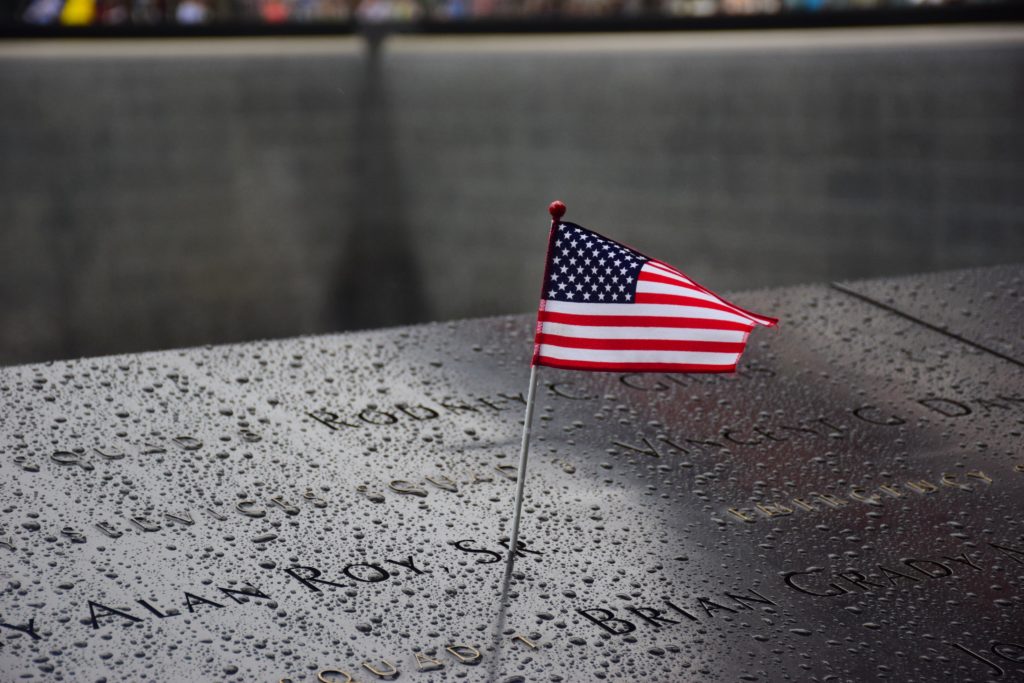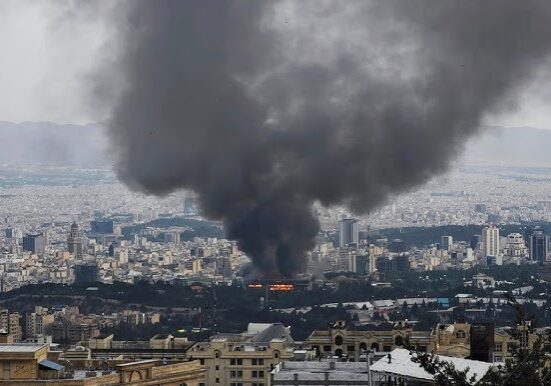Australia/Israel Review
9/11 anniversaries tell a tale
Sep 15, 2021 | Clifford May

On the first anniversary of the Sept. 11, 2001 attacks, I wrote a column about a BBC radio program. I had been a guest along with “activist” Bianca Jagger and Anglican Church envoy Terry Waite. Neither evinced sympathy for what Americans had suffered at the hands of al-Qaeda and its enabler, the Taliban. On the contrary, Ms. Jagger accused the Bush Administration of killing “thousands” of innocent Afghans.
A year later, I wrote an anniversary column praising Sen. John Kerry, then a presidential candidate, for calling the attacks “our generation’s Pearl Harbor.” But I questioned whether he grasped the implication: Had our enemies awakened a “sleeping giant” and filled him “with a terrible resolve” (as Japanese Admiral Isoroku Yamamoto is reputed to have said)?
My 2004 anniversary column noted with chagrin that editors at Reuters had begun asserting that “one man’s terrorist is another man’s freedom fighter.”
Two years later, it seemed to me that “we have begun to understand that we have enemies, that they pose a serious threat, and that we must fight them.” I referenced the Bush Administration’s National Strategy for Combating Terrorism, which declared that the US would “kill or capture the terrorists; deny them safe haven and control of any nation; prevent them from gaining access to WMD.”
My 2007 anniversary column observed that Gen. David Petraeus had taken “command of the 28,000 reinforcements he needed in order to change course in Iraq” targeting al-Qaeda in Iraq, which had been “suicide-bombing mosques and markets in an attempt to foment a civil war… He also began to challenge the Iranian-backed Shia militias that had gained power by responding to the AQI attacks.”
On Sept. 10, 2009, I expressed support for President Obama’s decision to surge 21,000 additional troops into Afghanistan. Still, I criticised him for appearing ambivalent about the mission at a time when too many, on both the left and the right, were “arguing for retreat”.
I added: “Any time infidels flee, declaring ‘This is a war that can’t be won!’ or even ‘This is a war that can’t be won militarily!’ the jihadis gain.”
The next year, I focused on President Obama’s contention that “open-ended war” does not “serve” American interests. If he wasn’t going to commit the resources necessary to defeat America’s enemies but didn’t want to accept defeat at the hands of those enemies, the only option remaining was the one he was rhetorically rejecting: a long war, a “low-intensity war,” to prevent our enemies from triumphing. That war would have to be fought, I wrote, “on a variety of fronts. Afghanistan is one of them.”
On the 11th anniversary of the attacks, Ansar al-Sharia terrorists killed four Americans at the diplomatic compound in Benghazi, Libya. My column lamented that, nevertheless, on “television and in the editorial pages of newspapers, there was almost no discussion of who our enemies are, what they believe, what goals they seek to achieve, and what strategies they are pursuing.”
Two years ago, I wrote that “despite his misgivings, Mr. Trump has maintained a small contingent of American troops in Syria whose main mission is to enable Kurdish and Arab partners to continue to diminish the Islamic State, which emerged following Mr Obama’s withdrawal from Iraq in 2011.”
But I expressed concern about Mr. Trump’s dialogue with the Taliban – especially his plan to meet with Taliban leaders at Camp David. “Can you think of a better way to send a message of legitimacy and encouragement not just to the Taliban but to all jihadi groups and regimes in the Middle East and beyond?” I asked.
Though Mr. Trump cancelled the meeting, talks continued, culminating in a bad deal that the Taliban soon violated but which President Biden now claims he couldn’t reject.
Last year’s anniversary column drew from Congressional testimony by Thomas Joscelyn, making clear that al-Qaeda branches, and those of its offshoot, the Islamic State, have been “waging insurgencies” and setting up “terrorist networks” in a growing list of countries on several continents.
“These groups have not launched a catastrophic terrorist attack in the West in recent years, but that’s not because they wouldn’t like to,” I posited. “It’s in large measure because the US and some allies have taken the fight to them.”
At that point, there were fewer than 10,000 US troops in Afghanistan – down from more than 100,000 at the end of President Bush’s second term. With only that small contingent supporting Afghan forces, wrote Gen. Petraeus, al-Qaeda was being prevented from re-establishing the infrastructure it had “under the Taliban prior to its ouster from power.”
“Rather than a safe haven for extremists to plot devastating strikes,” he added, “Afghanistan over the last two decades became an outpost from which the United States and its allies could project power against the terrorists.”
But, as he and others feared, President Trump’s bad deal, implemented with stunning incompetence by President Biden, has squandered those gains. We’re back to Sept. 10, 2001, except that both our enemies and our allies are now watching the sleeping giant return to his slumbers. Expect serious repercussions to follow.
Clifford D. May is founder and president of the Foundation for Defense of Democracies (FDD) and a columnist for the Washington Times. © FDD (www.fdd.org), reprinted by permission, all rights reserved.
Tags: Al-Qaeda, Middle East, Terrorism, United States






